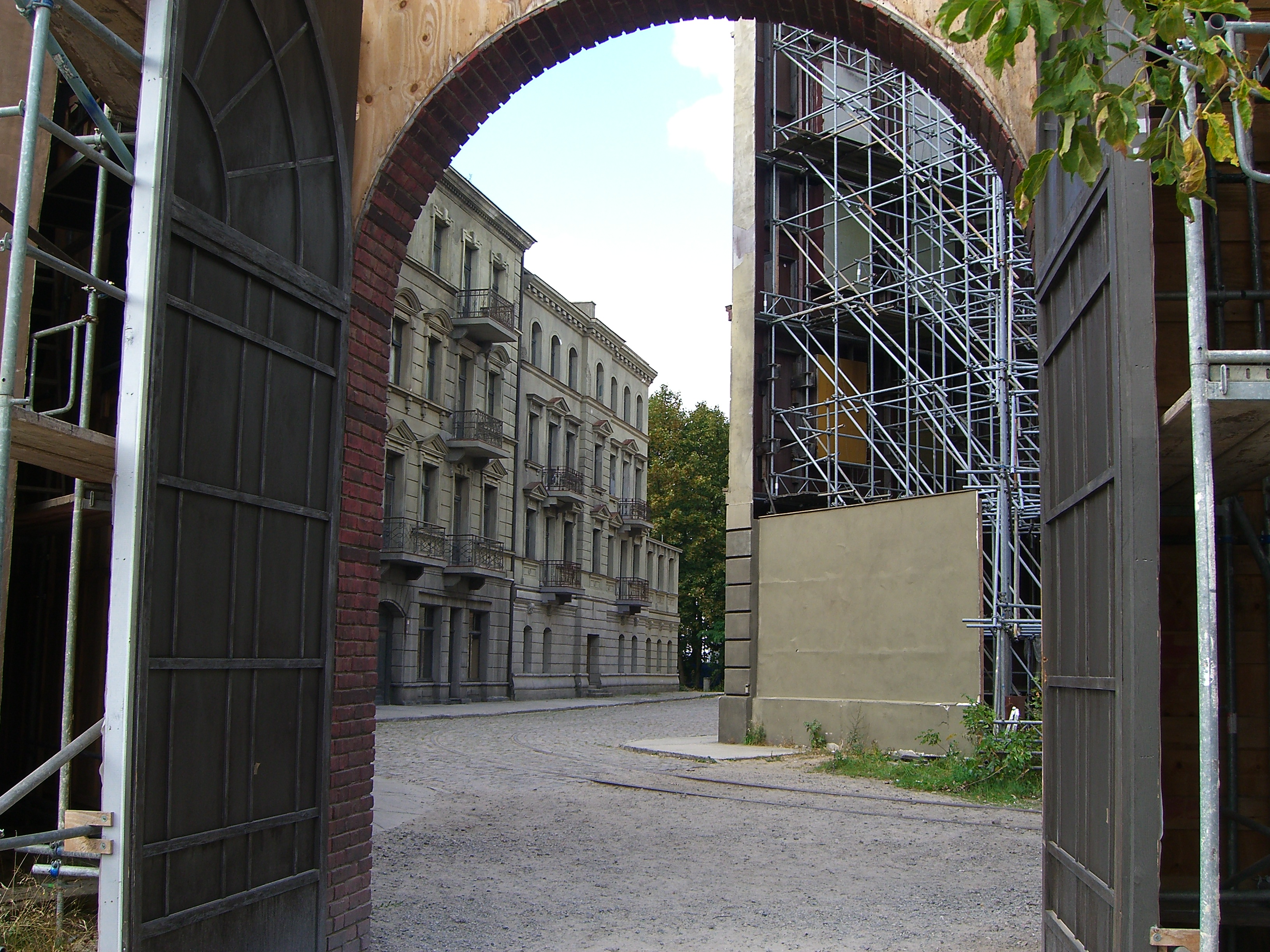|
Peter Krieg
Peter Krieg, born as Wilhelm Walter Gladitz (August 27, 1947 in Schwäbisch Gmünd, West Germany – July 22, 2009 in Berlin, Germany) was a documentary filmmaker, producer and writer. He initially enrolled in business and economics courses at Hamburg University but abandoned his studies to travel and teach horsemanship in Lebanon and Saudi Arabia. He later returned to Germany with his first wife, the American Heidi Knott, with whom he studied film at the German Film & TV Academy (DFFB) in Berlin and collaborated on his early works. For ''September Wheat'' Krieg received the German Film Award and the Adolf Grimme Prize. Many of his films were internationally distributed. He has also produced documentary films of other filmmakers, such as Egyptian/German A'Wahed Askar. Biography Peter Krieg initiated and co-founded the OEKOMEDIA Institute and Festival for Ecological Media, ( Freiburg, 1982–2005) as well as the interActiva Festival for Interactive Media (Cologne/ Babelsberg 19 ... [...More Info...] [...Related Items...] OR: [Wikipedia] [Google] [Baidu] |
Schwäbisch Gmünd
Schwäbisch Gmünd (, until 1934: Gmünd; Swabian: ''Gmẽẽd'' or ''Gmend'') is a city in the eastern part of the German state of Baden-Württemberg. With a population of around 60,000, the city is the second largest in the Ostalb district and the whole East Württemberg region after Aalen. The city is a ''Große Kreisstadt'' since 1956, i.e. a chief city under district administration; it was the administrative capital of its own rural district until the local government reorganisation on 1 January 1973. There are some institutions of higher education in the city, most notably the Pädagogische Hochschule Schwäbisch Gmünd (University of Education Schwäbisch Gmünd) and the Landesgymnasium für Hochbegabte (State Highschool for gifted children). Schwäbisch Gmünd was a self-ruling free imperial city from the 13th century until its annexation to Württemberg in 1802. Geography Schwäbisch Gmünd is situated within the northern foothills of the Swabian Jura Mountains o ... [...More Info...] [...Related Items...] OR: [Wikipedia] [Google] [Baidu] |
Freiburg
Freiburg im Breisgau (; abbreviated as Freiburg i. Br. or Freiburg i. B.; Low Alemannic: ''Friburg im Brisgau''), commonly referred to as Freiburg, is an independent city in Baden-Württemberg, Germany. With a population of about 230,000 (as of 31 December 2018), Freiburg is the fourth-largest city in Baden-Württemberg after Stuttgart, Mannheim, and Karlsruhe. The population of the Freiburg metropolitan area was 656,753 in 2018. In the south-west of the country, it straddles the Dreisam river, at the foot of the Schlossberg. Historically, the city has acted as the hub of the Breisgau region on the western edge of the Black Forest in the Upper Rhine Plain. A famous old German university town, and archiepiscopal seat, Freiburg was incorporated in the early twelfth century and developed into a major commercial, intellectual, and ecclesiastical center of the upper Rhine region. The city is known for its medieval minster and Renaissance university, as well as for its high stand ... [...More Info...] [...Related Items...] OR: [Wikipedia] [Google] [Baidu] |
German Documentary Filmmakers
German(s) may refer to: * Germany (of or related to) ** Germania (historical use) * Germans, citizens of Germany, people of German ancestry, or native speakers of the German language ** For citizens of Germany, see also German nationality law **Germanic peoples (Roman times) * German language **any of the Germanic languages * German cuisine, traditional foods of Germany People * German (given name) * German (surname) * Germán, a Spanish name Places * German (parish), Isle of Man * German, Albania, or Gërmej * German, Bulgaria * German, Iran * German, North Macedonia * German, New York, U.S. * Agios Germanos, Greece Other uses * German (mythology), a South Slavic mythological being * Germans (band), a Canadian rock band * "German" (song), a 2019 song by No Money Enterprise * ''The German'', a 2008 short film * "The Germans", an episode of ''Fawlty Towers'' * ''The German'', a nickname for Congolese rebel André Kisase Ngandu See also * Germanic (other) * ... [...More Info...] [...Related Items...] OR: [Wikipedia] [Google] [Baidu] |
People From Schwäbisch Gmünd
A person ( : people) is a being that has certain capacities or attributes such as reason, morality, consciousness or self-consciousness, and being a part of a culturally established form of social relations such as kinship, ownership of property, or legal responsibility. The defining features of personhood and, consequently, what makes a person count as a person, differ widely among cultures and contexts. In addition to the question of personhood, of what makes a being count as a person to begin with, there are further questions about personal identity and self: both about what makes any particular person that particular person instead of another, and about what makes a person at one time the same person as they were or will be at another time despite any intervening changes. The plural form "people" is often used to refer to an entire nation or ethnic group (as in "a people"), and this was the original meaning of the word; it subsequently acquired its use as a plural form of per ... [...More Info...] [...Related Items...] OR: [Wikipedia] [Google] [Baidu] |
2009 Deaths
This is a list of deaths of notable people, organised by year. New deaths articles are added to their respective month (e.g., Deaths in ) and then linked here. 2022 2021 2020 2019 2018 2017 2016 2015 2014 2013 2012 2011 2010 2009 2008 2007 2006 2005 2004 2003 2002 2001 2000 1999 1998 1997 1996 1995 1994 1993 1992 1991 1990 1989 1988 1987 See also * Lists of deaths by day The following pages, corresponding to the Gregorian calendar, list the historical events, births, deaths, and holidays and observances of the specified day of the year: Footnotes See also * Leap year * List of calendars * List of non-standard ... * Deaths by year {{DEFAULTSORT:deaths by year ... [...More Info...] [...Related Items...] OR: [Wikipedia] [Google] [Baidu] |
Heinz Von Foerster
Heinz von Foerster (German spelling: Heinz von Förster; November 13, 1911 – October 2, 2002) was an Austrian American scientist combining physics and philosophy, and widely attributed as the originator of Second-order cybernetics. He was twice a Guggenheim fellow (1956–57 and 1963–64) and also was a fellow of the American Association for the Advancement of Science, 1980. He is well known for his 1960 Doomsday equation formula published in ''Science'' predicting future population growth. As a polymath, he wrote nearly two hundred professional papers, gaining renown in fields from computer science and artificial intelligence to epistemology, and researched high-speed electronics and electro-optics switching devices as a physicist, and in biophysics, the study of memory and knowledge. He worked on cognition based on neurophysiology, mathematics, and philosophy and was called "one of the most consequential thinkers in the history of cybernetics". He came to the United States, an ... [...More Info...] [...Related Items...] OR: [Wikipedia] [Google] [Baidu] |
Radical Constructivism
Radical constructivism is an approach to epistemology that situates knowledge in terms of knowers' experience. It looks to break with the conception of knowledge as a correspondence between a knower's understanding of their experience and the world beyond that experience. Adopting a sceptical position towards correspondence as in principle impossible to verify because one cannot access the world beyond one's experience in order to test the relation, radical constructivists look to redefine epistemology in terms of the viability of knowledge within knowers' experience.Glasersfeld, E. von. (1990). An exposition of constructivism: Why some like it radical. Journal for Research in Mathematics Education Monograph, 4, 19-29. https://doi.org/10.2307/749910Glasersfeld, Ernst von. (1984). An introduction to radical constructivism. In P. Watzlawick (Ed.), The invented reality (pp. 17-40). Norton. http://www.vonglasersfeld.com/070.1 This break from the traditional framing of epistemology differ ... [...More Info...] [...Related Items...] OR: [Wikipedia] [Google] [Baidu] |
Second-order Cybernetics
Second-order cybernetics, also known as the cybernetics of cybernetics, is the recursive application of cybernetics to itself and the reflexive practice of cybernetics according to such a critique. It is cybernetics where "the role of the observer is appreciated and acknowledged rather than disguised, as had become traditional in western science". Glanville, R. (2002). "Second order cybernetics." In F. Parra-Luna (ed.), Systems science and cybernetics. In ''Encyclopaedia of Life Support Systems'' (EOLSS). OxfordEoLSS Second-order cybernetics was developed between the late 1960s and mid 1970s by Heinz von Foerster and others, with key inspiration coming from Margaret Mead. Foerster referred to it as "the control of control and the communication of communication" and differentiated first order cybernetics as "the cybernetics of observed systems" and second-order cybernetics as "the cybernetics of observing systems". Foerster, Heinz von, ed. ''Cybernetics of Cybernetics: Or, the Contro ... [...More Info...] [...Related Items...] OR: [Wikipedia] [Google] [Baidu] |
Babelsberg Studios
Babelsberg Film Studio (german: Filmstudio Babelsberg), located in Potsdam-Babelsberg outside Berlin, Germany, is the second oldest large-scale film studio in the world only preceded by the Danish Nordisk Film (est. 1906), producing films since 1912. With a total area of about and a studio area of about it is Europe's largest film studio. Hundreds of films, including Fritz Lang's ''Metropolis'' and Josef von Sternberg's ''The Blue Angel'' were filmed there. More recent productions include ''V for Vendetta'', '' Captain America: Civil War'', ''Æon Flux'', '' The Bourne Ultimatum'', ''Valkyrie'', ''Inglourious Basterds'', ''Cloud Atlas'', ''The Grand Budapest Hotel'', ''The Hunger Games'', ''Isle of Dogs'' and ''The Matrix Resurrections''. Today, Studio Babelsberg remains operational mainly for feature film productions. It also acts as producer on German productions and co-producer on international high-budget productions. Since January 2022 it has been owned by TPG Real Estate ... [...More Info...] [...Related Items...] OR: [Wikipedia] [Google] [Baidu] |
Babelsberg
Babelsberg () is the largest quarter (''Stadtteil'') of Potsdam, the capital city of the German state of Brandenburg. The affluent neighbourhood named after a small hill on the Havel river is famous for Babelsberg Palace and Park, part of the Palaces and Parks of Potsdam and Berlin UNESCO World Heritage Site, as well as for Babelsberg Studio, a historical centre of the German film industry and the first large-scale movie studio in the world. History A settlement on the small Nuthe creek was first mentioned in the 1375 ''Landbuch'' (domesday book) by Emperor Charles IV of Luxembourg, who also ruled as Margrave of Brandenburg since 1373. Then called ''Neuendorf'' (New Village) after its former West Slavic name ''Nova Ves'', it was shelled several times and was severely damaged during the Thirty Years' War. In the mid-18th century the new village of Nowawes was founded by King Frederick II of Prussia and settled with Protestant Bohemian deportees, predominantly weavers who as de ... [...More Info...] [...Related Items...] OR: [Wikipedia] [Google] [Baidu] |
Cologne
Cologne ( ; german: Köln ; ksh, Kölle ) is the largest city of the German western States of Germany, state of North Rhine-Westphalia (NRW) and the List of cities in Germany by population, fourth-most populous city of Germany with 1.1 million inhabitants in the city proper and 3.6 million people in the Cologne Bonn Region, urban region. Centered on the left bank of the Rhine, left (west) bank of the Rhine, Cologne is about southeast of NRW's state capital Düsseldorf and northwest of Bonn, the former capital of West Germany. The city's medieval Catholic Cologne Cathedral (), the third-tallest church and tallest cathedral in the world, constructed to house the Shrine of the Three Kings, is a globally recognized landmark and one of the most visited sights and pilgrimage destinations in Europe. The cityscape is further shaped by the Twelve Romanesque churches of Cologne, and Cologne is famous for Eau de Cologne, that has been produced in the city since 1709, and "col ... [...More Info...] [...Related Items...] OR: [Wikipedia] [Google] [Baidu] |

_4029.jpg)
_1938.jpg)



